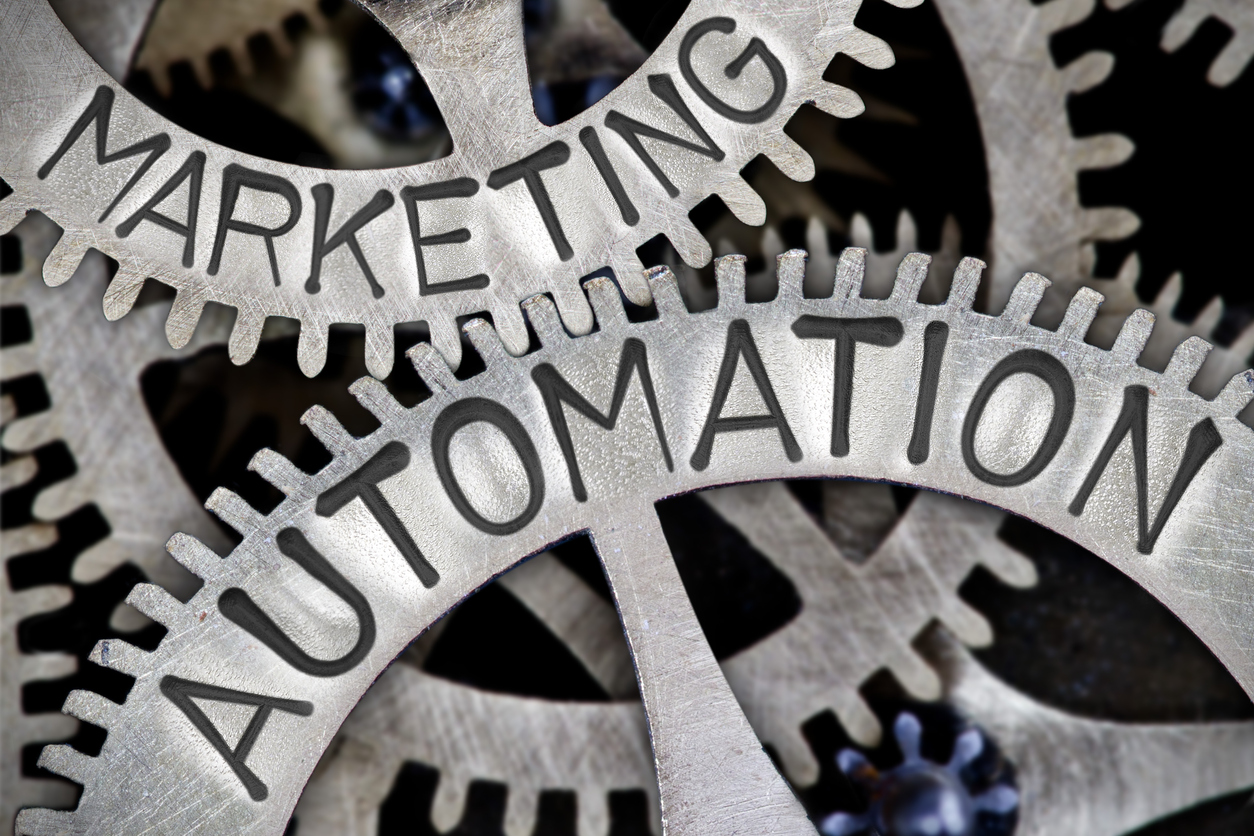The marketing industry is changing. Evolving, even. Like a complex strand of human DNA, the marketing industry itself adapts to the needs of the user over time, making marketers more efficient, effective, and successful at what they do.
We can all agree that today’s businesses have a much bigger challenge when attempting to market products and services than marketers had 50 years ago. In the ‘60s and ‘70s, mailouts, in-person promotion, and door-to-door were king.
Those approaches aren’t entirely irrelevant now, but they certainly won’t make you competitive with the ever-growing online market. Instead, today’s marketers must deal with an ever-growing list of sales channels, including social media, email, website, and influencer marketing in addition to timeless and classic techniques. It’s easy to get lost without the right supports.
Here’s a little slice of hope: there’s a secret ingredient that’s making marketers more effective, efficient, and most importantly, productive, than ever before.
That secret ingredient? Marketing software.
What Makes Marketing Software So Special?
You may already interface with some form of marketing software daily. If you don’t, or if you’re just getting started with fully understanding how to use marketing software to your advantage, you’re in luck!
In this post, we’ll strip back the curtain to reveal exactly what makes marketing software so beneficial for productivity.
Handle Menial Tasks Through Automation
Mailing out email newsletters. Creating landing pages. Confirmation emails. Creating signup forms. Addressing requests for more info on your product. All of these menial tasks take up precious time during your day. They’re an important cog in the wheel, but it’s a cog you really shouldn’t be handling yourself unless there’s no other choice.
(Spoiler alert: there’s a choice.)
With the right automation software, actions like these become effortless. You spend a few minutes typing in your data (or in some cases, linking to a database), and the software auto-creates your next landing page, publishes it, rolls out your newsletter, and then cross-posts an associated update to all four of your major social media presences.
Over time, consistent use makes your databases and software even more efficient at handling marketing-specific tasks. That’s less effort on your part to achieve the same results.
You’re saving time and money.
Where businesses often go wrong is in assuming that it’s cheaper and easier to assign someone right in the office to handle these tasks.
Truthfully, even at the corporate level, ROI from productivity gained through automation software versus human intervention just doesn’t even compare. What would take an administrative assistant or intern several hours gets finished in minutes with minimal input, and that’s sheer time saved.
Marketing-Specific, In-Depth Analytics
Analytics are a bone of contention for many marketers. Even platforms like Google Analytics won’t necessarily give you the whole picture, and that means more time spent crunching numbers to determine exactly what you need to do to make visitors convert when they arrive at your website.
It’s not that Google Analytics is bad; on the contrary, it’s a really valuable tool for web developers. But marketers aren’t web developers, and that means Google just doesn’t provide information in a way that allows you to be as efficient as possible.
Web analytics software designed with marketers in mind is highly preferred, especially when it comes to productivity. At face value, these programs reduce the amount of time you spend on the tiny details and let you zoom to the heart of the issue faster.
Problems get fixed, more people convert, and you get back to the business of closing sales rather than nitpicking digits.
The best marketing and web analytics software monitors your entire campaign and automatically forges connections from the data discovered within it. Rather than monitoring a single website, your software monitors your social media accounts, your newsletters, your email marketing campaigns, your website(s), and most other sales channels.
Savvy software can point out who’s visiting, who’s reading, and who’s engaging with your brand at more than one level — a surefire sign of a warmer sale.
Monitored & Tracked Customer Interactions
Who’d you speak with yesterday?
How about the week before?
If you can’t remember every interaction, much less exactly what you said to them or what you discussed, congratulations!
You’re human.
With high-volume marketing and sales, it just isn’t possible to remember every single detail from every single interaction or customer over years of business.
Nor should you even try; the only effective way to do this is with notes upon notes upon notes. If you’re not using marketing software for your CRM, that means sticky notes, misplaced memos, digging through your tablet to locate the details of an offer, and overall, losing time and sales due to critical lost details along the way.
CRM can save you from this despot of despair by organizing, recording, and tracking every interaction with every lead from the first email to the 40th sale. That means no more double-bookings, no missed telephone calls, and no forgotten demos, even when the campaign goes viral and everything seems chaotic.
Using a CRM takes minimal effort, and effectively organizes your entire campaign. With everything stored in a database, all that’s left to do is click a few check-boxes, enter any individually-specific notes now and again, and the information is readily available at a glance whenever you need it.
Even if that’s right when the customer calls, and you’re standing in the line at Starbucks.
Thanks, mobile apps!
Reduce Email Marketing & Social Media Workloads
Emails and social media — 99u calls them an “evil workplace zombie,” and they’re not even talking about marketers. They’re talking about everyday workers and the sheer amount of time wasted on these two individual tasks every single day.
They’re right.
Most research backs up the fact that social and communications platforms can eat up an immense amount of time. Considering that these two channels are the lifeblood of many marketing campaigns, that places marketers at an even larger disadvantage without automation.
99u’s writers claim that the average individual checks their email as often as 11 times every hour during work. TechTalk backs this up, claiming that a survey showed that 81 percent of American employees not only wasted time at work but checked communication platforms outside of work, too.
That’s potentially days of wasted time every single year that could cripple your productivity and make you inefficient. You’re wasting precious time every moment you sit down to create a new database by hand, craft a new newsletter, or send off basic emails to leads.
Even your social media posts can cripple your productivity if you’re posting them in real time throughout the course of the day or night. Sure, you can assign someone to handle it for you, but that’s wasted employee hours and money.
Here’s the fix.
Use reliable marketing software and gain access to automating all of these channels from the same hub. With the right platform by your side, you can use Cordial, MailChimp, Constant Contact, or even customized templates for your emails and newsletters.
Adaptable databases that tie into all channels of your campaign maintain and administer mailing lists for you, so you’re not spending hours tending them yourself. When someone drops out as a lead, they’re removed. When someone signs up, they’re added.
As for social media posting, it’s all about efficiency. Both CRM and hub platforms have a role to play, and if they’re integrated, it’s even more effective. Your CRM monitors and tracks interactions; your posting hub lets you roll out and schedule posts well into the future on most major social media sites in a single click.
All that’s left is writing killer content that converts.
Better known in marketing terms as “the human touch.”
There’s a common predisposition to assume that automation and marketing software utilization makes customer interactions feel cold, calculating, and little more than a numbers game. This absolutely was true 20 years ago, but it’s certainly not the case now. Today, it’s possible to achieve sales productivity through automation without losing that vital human touch that closes the deal. People feel appreciated, you’re more productive, and most importantly, you close more deals. Sweet, sweet success!
President and founder of DVI, Aaron Boerger realized early in life that he had a unique combination of x-ray vision and business acumen for seeing the weaknesses that held businesses back – and the ability to define the right tools, technology and strategy to make them stronger.
From founding a successful technology support business in his early teens, to serving as Chief Operating Officer for several companies in the financial, technology and marketing industries, Aaron has developed a reputation for reinventing technology implementation tactics – and the willingness to tell people not what they want to hear, but what they need to hear, in order to achieve success without overwhelm.
Aaron will always go the extra mile to provide the accountability and support his clients need to achieve their goals, yet isn’t afraid to tell them when they are doing something wrong.

